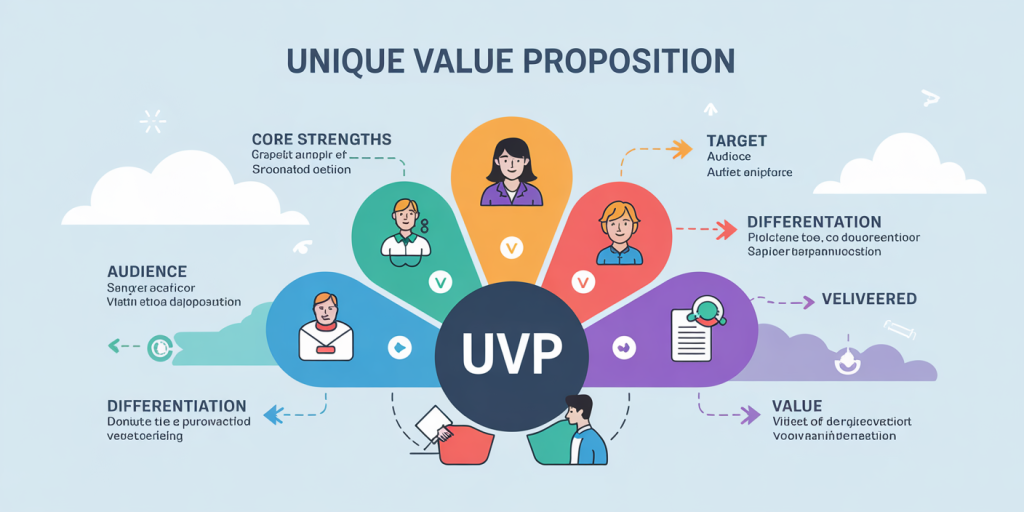How to Build a Personal Brand That Opens Doors
In today’s hyper-connected world, personal branding has transcended the boundaries of traditional marketing and career advancement to become an essential asset for professionals across industries. A well-crafted personal brand not only distinguishes you from the competition but also creates trust, credibility, and long-lasting opportunities. According to a 2023 LinkedIn survey, 85% of hiring managers and recruiters report they are more likely to connect with candidates who have a strong personal brand online. As markets become more saturated and competitive, understanding how to build a personal brand that opens doors is no longer a luxury—it’s a necessity.
This article will explore actionable strategies and proven techniques to help you develop a compelling personal brand that resonates with your target audience, creates networking opportunities, and accelerates your career growth. Leveraging insights from industry leaders, behavioral science, and digital marketing trends, you will learn how to authentically showcase your unique value and adapt your personal brand over time.
—
Understanding the Power of Personal Branding
Personal branding is more than just creating a catchy tagline or stylish logo—it is about intentionally shaping how the world perceives you. According to Forbes, a strong personal brand can increase your perceived value by up to 20%, impacting everything from salary negotiations to collaboration offers. The power of personal branding lies in its ability to convey your expertise, personality, and core values consistently across channels, enabling you to build trust and authority.
For instance, consider the case of professional speaker and author Simon Sinek. His personal brand revolves around leadership and purpose-driven work, which is communicated seamlessly through his books, talks, and social media presence. This consistent messaging has made him a global influencer and opened doors to partnerships with large organizations like Microsoft and the U.S. Navy. His example highlights the role clarity and authenticity play in personal branding success.

Furthermore, a 2022 survey by Edelman found that 67% of people trust an individual’s thought leadership more than a company’s advertising. This statistic underscores why professionals must focus on building a relatable personal brand rather than relying solely on corporate identities to advance their careers.
—
Defining Your Unique Value Proposition
The foundation of any successful personal brand is a clear and compelling Unique Value Proposition (UVP). Your UVP specifies what makes you different and why someone should work with you, hire you, or collaborate with you. To determine this, start by analyzing your skills, experiences, passions, and the problems you solve.

Take the example of Marie Forleo, an entrepreneur and coach. Her UVP is focused on empowering creative entrepreneurs to combine business rigor with creativity. She leverages this to offer specific, actionable advice through her online courses and content, making her brand memorable and useful. Similarly, you want to answer three key questions for yourself: What do you do? Who do you serve? How do you do it differently or better?
Here is a comparative table that encapsulates the elements to consider when crafting your UVP:
| Key Element | Description | Practical Example |
|---|---|---|
| Core Strengths | Your top skills and expertise | Digital marketing, public speaking |
| Target Audience | Who benefits most from your abilities | Small business owners, startups |
| Differentiation | What sets you apart from peers | Data-driven strategies, creative storytelling |
| Value Delivered | Outcome you help clients or employers achieve | Increased brand awareness and sales |
This kind of clear UVP enables consistency in communication and attracts opportunities aligned with your strengths.
—
Building a Robust Online Presence
In the digital age, your online presence often forms the first impression of your personal brand. A 2024 survey by CareerBuilder indicated that 70% of employers use social media to screen candidates, making a professional and authentic online image indispensable.
Start by optimizing your LinkedIn profile—a vital platform for professional networking. Use a high-quality photo, a compelling headline incorporating your UVP, and detailed descriptions highlighting your achievements. Regularly share valuable content, such as industry insights or case studies, to position yourself as a thought leader.
Consider the influence of Gary Vaynerchuk, a serial entrepreneur whose personal brand thrives on platforms like Instagram, Twitter, and YouTube. Gary engages his audience through candid, frequent, and value-packed posts that reinforce his image as an expert in digital marketing and business growth. His aggressive, transparent approach attracts millions of followers and business opportunities.
Beyond LinkedIn and social media, consider creating a personal website or blog that showcases a portfolio of your work, testimonials, and a biography. This central hub strengthens your credibility and serves as a direct point of contact for prospective clients and collaborators.
—
Networking with Intent and Authenticity
While digital visibility is crucial, real-world interactions remain irreplaceable in personal branding. Effective networking combines intention with authenticity, focusing on building genuine relationships rather than collecting contacts.
Use industry events, conferences, and professional groups to meet peers and influencers. For example, attending niche meetups such as tech summits or marketing forums can connect you with decision-makers who align with your career goals. As per a 2023 study by Eventbrite, 95% of professionals believe face-to-face meetings are essential for improving business relationships.
Consider the case of Reid Hoffman, co-founder of LinkedIn, who emphasizes “giving before getting.” In other words, add value in your connections by offering insights, assistance, or introductions without immediate expectations. This strategy often leads to reciprocal goodwill and new doors opening.
Additionally, utilize online networking by engaging in relevant LinkedIn groups, Twitter chats, and professional forums. The key here is to participate meaningfully rather than promoting yourself overtly, fostering trust and recognition.

—
Leveraging Content to Showcase Expertise
Content marketing is a powerful engine for building a personal brand that commands respect. By consistently creating and sharing insightful content, you demonstrate your expertise and provide tangible value to your audience.
Take Jeff Bullas, a marketing blogger who has grown his personal brand through relentless blogging, podcasts, and published ebooks. His content educates thousands weekly and acts as a lead magnet for collaboration opportunities, speaking engagements, and consulting contracts.
Start small by choosing formats that suit your style: blog posts, video tutorials, podcasts, or newsletters. Focus on topics aligned with your UVP and audience interests. For example, if you’re an HR professional, write about emerging trends in talent management or leadership development. Research from Demand Metric shows that content marketing generates over three times as many leads as outbound marketing while costing 62% less.
Consistency is crucial—establish an editorial calendar and stick to a regular schedule. Over time, your content portfolio will serve as a digital resume and proof of your capabilities.
—
Future Perspectives: Evolving Your Brand in a Dynamic Landscape
The landscape of personal branding is continuously evolving due to technological advances, market shifts, and cultural changes. To keep your personal brand opening doors, you must commit to ongoing learning, adaptation, and innovation.
Artificial intelligence (AI) and augmented reality (AR) will increasingly shape personal branding tools and experiences. For example, AI-driven analytics can tailor your content strategy by analyzing what resonates most with your audience. Virtual networking environments boosted by AR will create richer engagement opportunities beyond traditional video calls.
Moreover, authenticity and purpose-driven brands will dominate. McKinsey’s 2024 consumer report underscores that 73% of people prefer engaging with individuals and brands reflecting genuine values and social responsibility. Thus, integrating your brand mission with ethical practices can create deeper connections and loyalty.
Finally, cross-disciplinary skills will gain importance. The most influential personal brands of the future will be those that combine technical expertise with emotional intelligence, storytelling, and cultural competency. By embracing lifelong learning and proactive rebranding, you ensure your personal brand remains relevant and door-opening in an ever-changing world.
—
By understanding these principles and applying structured, authentic strategies, you can build a personal brand that not only distinguishes you but actively opens doors to new ventures, collaborations, and career milestones. The journey of personal branding is ongoing, requiring commitment but yielding expansive, rewarding results.
